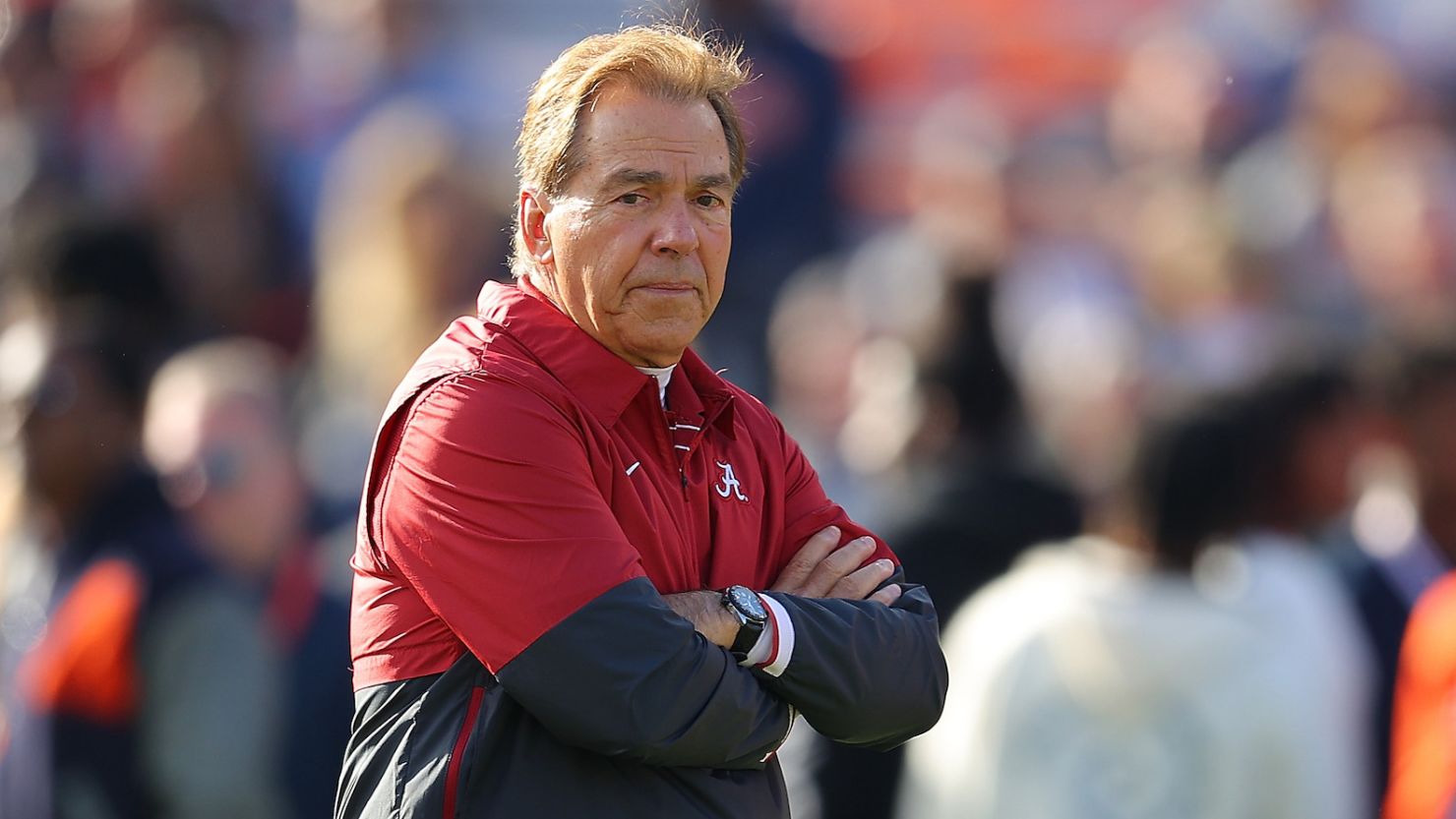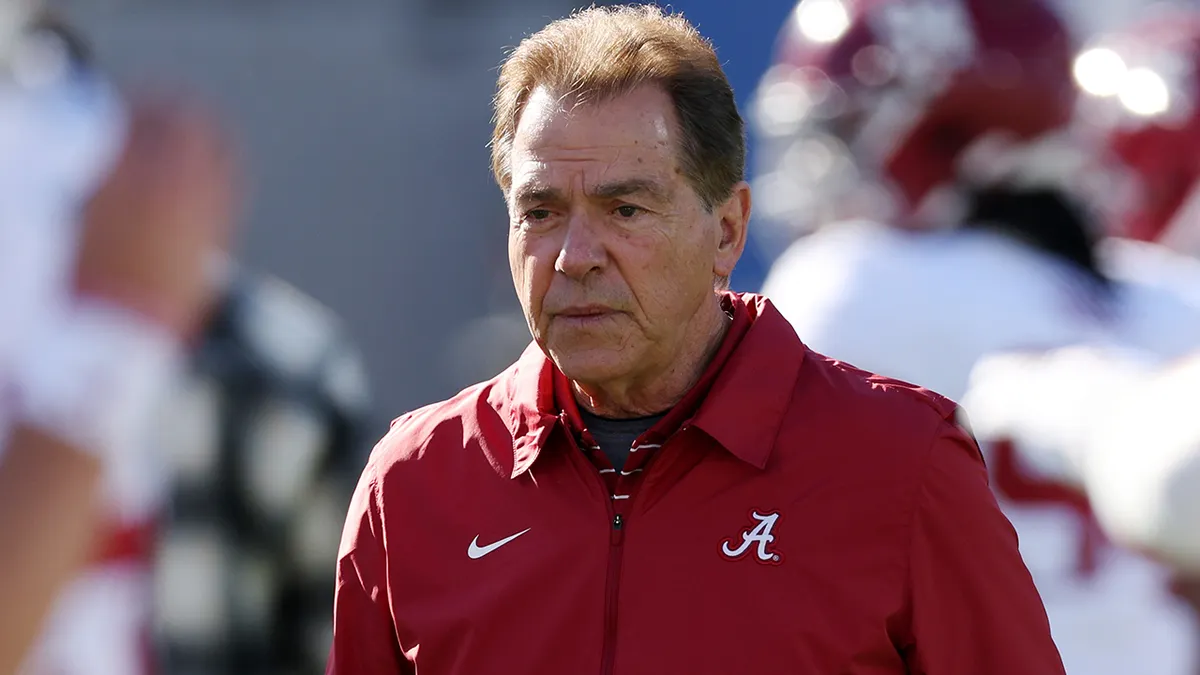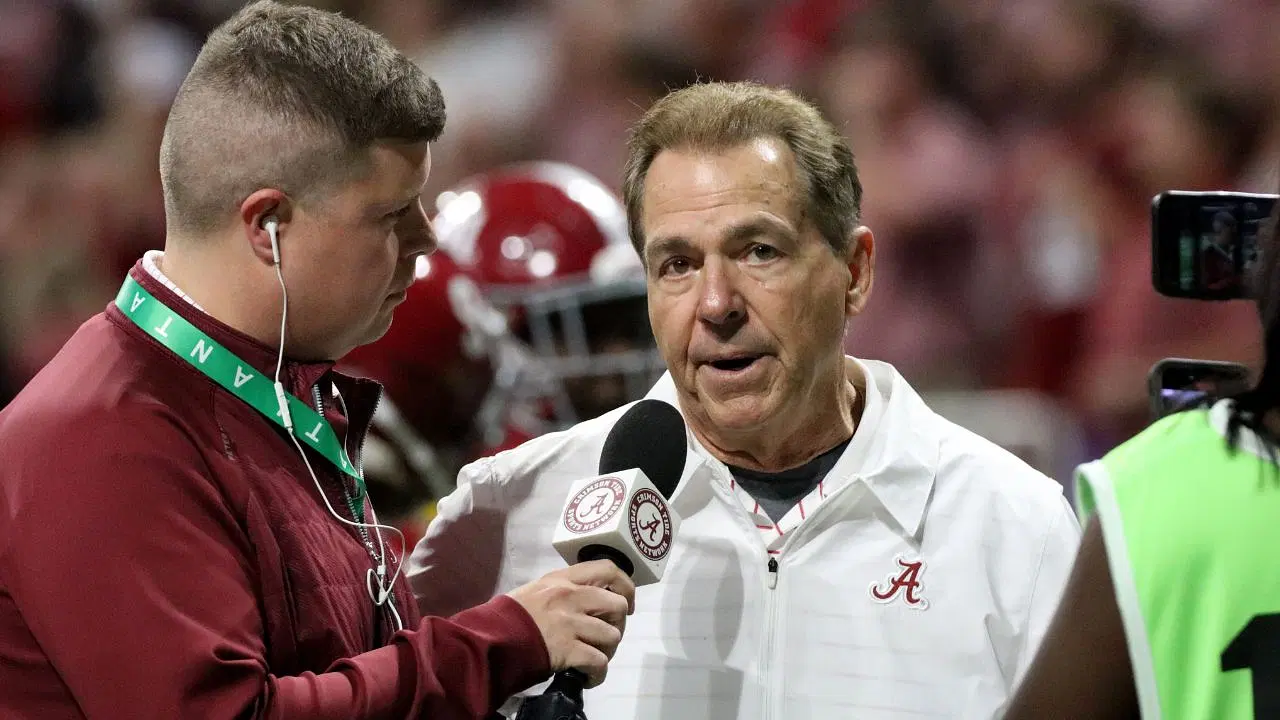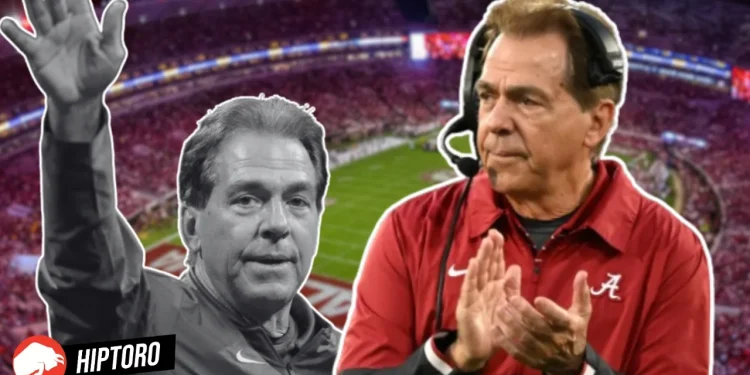In the wake of Nick Saban’s retirement announcement, the college football world has been reflecting on the monumental impact of one of its most storied coaches. Saban’s tenure was not just about the seven national championships or the fervent fan base he cultivated; it was also marked by his profound influence on the evolution of college athletics. As Saban steps away from the sidelines, his parting thoughts offer a critical examination of the current state of the sport, especially regarding the Name, Image, and Likeness (NIL) policies.

The Misconception Around Nick Saban’s Retirement
Contrary to initial speculation, Saban clarified in a discussion with Bret Brier of FOX News that his retirement was not triggered by the advent of NIL but by a desire to ensure the Alabama program’s longevity. His decision underscores a selfless commitment to the team’s future, wanting to pass the leadership to someone who can dedicate the long haul to maintaining its success.
Nick Saban on the Real Challenge: Collectives over NIL
Delving deeper into the issues facing college sports, Saban pointed out that the real disruption comes not from NIL agreements but from the rise of collectives. These arrangements, resembling professional sports contracts, diverge from the essence of NIL, which aims to empower athletes through partnerships with brands that resonate with their personal and public identities. Saban’s perspective sheds light on the nuanced distinctions between collectives and NIL deals, urging a reevaluation of how financial aspects are managed within collegiate sports.

Advocating for National Legislation
One of Saban’s key stances in his final days as a coach is the call for federal legislation to regulate NIL uniformly across states. The current patchwork of state laws creates an uneven playing field, complicating the recruitment process and potentially disadvantaging certain programs. Saban’s advocacy for national legislation reflects his long-standing commitment to the welfare and equitable treatment of student-athletes across the country.
Nick Saban used to live in a bubble where he was uninvolved with what Alabama players received as extras. The NIL placed this on his desk, and he wanted nothing to do with it, so he got out. pic.twitter.com/TPmfWG4gHW
— Jason Whitlock (@WhitlockJason) March 14, 2024
Nick Saban: Champion of Athlete Development
Throughout his career, Saban has consistently emphasized the importance of holistic growth for young athletes, both on and off the field. His support for NIL as a means for athletes to build their brands demonstrates his acknowledgment of the modern sports landscape. However, Saban also stresses the necessity of creating systems that support the comprehensive development of young people, ensuring that they are well-prepared for life beyond college sports.

Legacy and the Future
As Nick Saban steps into retirement, his legacy extends beyond his unparalleled achievements in coaching. His thoughtful critique of current challenges and his vision for a fairer, more sustainable future in college athletics leave an indelible mark on the sport. Saban’s career may have ended, but his influence will continue to resonate, guiding the next generation of coaches, athletes, and administrators toward a better understanding and implementation of NIL policies.
Nick Saban’s departure is a poignant reminder of the ever-evolving nature of college sports and the continuous need for adaptation and reform. As the industry navigates these changes, Saban’s insights and advocacy will remain a beacon for those striving to balance the commercial aspects of the sport with the developmental needs of its participants.

Source: The Sport Rush









